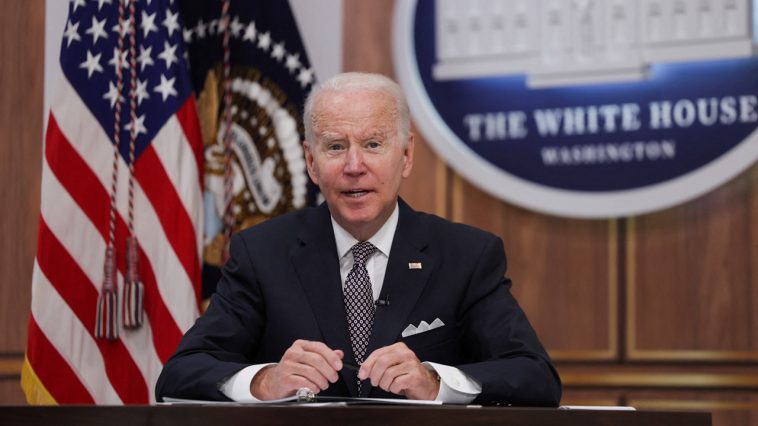LISTEN HERE:
Over the weekend, the current presidential administration has greenlit regulations that are primarily focused on decreasing the emissions of methane gas. Several policymakers and industry groups, however, perceive these regulations as presenting an unequal burden on smaller companies.
The Environmental Protection Agency (EPA) has put forth requirements for oil producers to modernize their operational machinery and to seek out potential methane leaks within their existing infrastructures. The goal of these actions is to manage methane emissions, a factor that the EPA cites as a crucial contributor to climate change.
These regulations, while technically aimed at mitigation of greenhouse gas emission, have sparked concern among various stakeholders.
The worry is that such mandates could inadvertently provide an advantage to larger oil companies, by being a burden that is easier for them to shoulder due to their vast financial resources. Contrarily, smaller oil producers could find themselves struggling to comply with these regulatory changes, given their comparatively limited resources.
The argument here is that some of the lesser-scale oil producers don’t have the same capital cushion or operational scale as the large oil corporations.
Hence, they see these new regulations as costly and quite similar to the control measures already imposed at the state level. This perspective is centered around the belief that the burden should be equitably distributed among all industry participants, as opposed to being skewed against smaller enterprises.
The Western Energy Alliance, an industry association that vouches for the interests of independent natural gas and oil producers in the Western geographical region of the country, has voiced similar discontent.
They have expressed their concerns in a public statement, admonishing the so-called ‘intentional efforts by the EPA to phase out hundreds of thousands of lower-yielding wells. Such action, they warn, might jeopardize a significant portion of America’s oil output- around 10 percent to be specific.’
Beyond just production rates, the Alliance also suggests that these new regulations could have critical implications for employment within the energy sector. They argue that enforcing such measures could potentially translate into a shrinking workforce, with a sharp impact on regions heavily reliant on energy sector jobs.
Interestingly, despite the dissension from these small and medium-sized companies and industry groups, major oil companies have expressed their voluntary commitment to reduce their methane emissions. This divergence of perspectives across different scales of operation in the industry adds a complex layer to the overall narrative around these newly approved environmental regulations.
Supporters of the regulations refute opposition arguments with a strong emphasis on their necessity. They underline the regulations intend to deal with one of the most immediate perils associated with climate change. In their opinion, any short term economic disadvantages are outweighed by the long-term protection of the climate and by extension, the human environment.
To further drive the point home, John Kerry, the U.S. special climate envoy, while not pointing to specific regulations, emphasized the severity of methane as an environmental threat. On a public platform, Kerry suggested that ‘methane presents one of the gravest threats in terms of the climate crisis.’
Elaborating on the role of this specific greenhouse gas, Kerry underlined its potential to increase the Earth’s temperature. He was quoted as saying, ‘the objective of maintaining the Earth’s temperature at a sustainable 1.5 degrees would be unattainable unless we prioritize and focus substantially on mitigating the release of methane.’
In this complex terrain, where environmental considerations intersect with business interests and operational realities, solutions are seldom straightforward.
Nevertheless, the ongoing dialogues around these new regulations point towards an understanding that both the environment and small businesses are important anchors of the society, and that there’s a need to strike a balance when formulating regulatory measures.
Proponents of the measures argue that taking the necessary steps to reduce methane emissions is vital for the sustainability of our planet. More broadly, the discussion about this regulation raises questions about the role of government regulation in industries and holding companies of all sizes accountable for their environmental impact.
These decisions, while needed, are never easy, demonstrating the constant struggles that decision-makers face when it comes to climate policy. They bear the burden of striking the right balance to ensure that the planet is protected while not disproportionately disadvantaging smaller operations.
The initial response to these new rules indicates the continuing need for conversation between all players in the energy sector. Insightful dialogues that integrate perspectives from both large and small companies, industry associations, and environmental activists can create a balance between economic priorities and our shared environmental goals.
The consequences will surely be keenly watched by all engaged parties, both in the interests of managing climate change and protecting small businesses. In the coming months, government officials and industry watchdogs alike will have to maintain strong lines of communication and flexibility as this balance is adjusted and new policies are introduced.
The issue ultimately raises more questions than answers about the path forward. However, in all discussions, everybody agrees on one thing: the urgency of addressing climate change and the consequent necessity of making difficult decisions for the sustainability and survival of our shared home.



